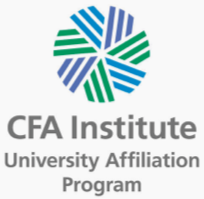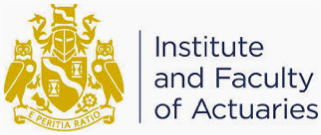
Mathematics is the language of modern business. This is a master’s degree that provides a solid mathematical background and presents cutting-edge quantitative methodologies and computational techniques that are essential in the financial industry.
We encourage internationalization and student’s exchange. It is possible to obtain a Double Degree with twin master programmes, currently, at the University of Lorraine, Nancy (France) and at Uniwersytet Ekonomiczny w Poznaniu (Poland).
 | Deloitte Merit Award Prize awarded by Deloitte to the best student in the 1st year of the Master’s in Mathematical Finance. |



Students receive in-depth training in modern mathematical and computational finance, becoming familiar with the most important theoretical, applied and technical topics in these areas.
Students have often been recruited by prominent companies whilst still developing their master’s Final Work.
Our students have also been recruited by International Institutions like the European Central Bank, the European Investment Bank or Google.
High quality of the academic staff of this Masters, all of whom hold PhDs from prestigious universities.
Double Degree: students can obtain a double degree using international agreements, currently with the University of Lorraine, Nancy (France) and with Uniwersytet Ekonomiczny w Poznaniu (Poland).
This Masters also prepares students for further doctoral studies and for carrying out innovation and scientific research in universities or companies.
A partnership of the Master’s in Mathematical Finance and the Advanced Risk and Portfolio Management Bootcamp – ARPM, at the University of New York, allows students who participate in the boot camp to obtain not only an ARPM certificate but also a mention in the supplement to their Master’s Diploma.




| Year 1 – Semester 1 | Credits |
|---|---|
| Financial Markets and Investments | 6 |
| Mathematical Methods in Finance | 6 |
| Programming Techniques | 6 |
| Probability Theory and Stochastic Processes | 6 |
| Elective I | 6 |
| Year 1 – Semester 2 | Credits |
|---|---|
| Stochastic Calculus | 6 |
| Financial Econometrics | 6 |
| Optimisation and Control Theory in Finance | 6 |
| Numerical Methods in Finance | 6 |
| Elective II | 6 |
| Year 2 – Semester 1 | Credits |
|---|---|
| Interest Rate and Credit Risk Models | 6 |
| Lévy Processes and Applications in Finance | 6 |
| Stochastic Finance in Continuous Time | 6 |
| MSc Final Work 1 (Thesis/Internship/Project) | 12 |
| Year 2 – Semester 2 | Credits |
|---|---|
| Master’s Final Work 2 — Thesis — Project — Internship | 30 |
See the description of each Curricular Units here.
Applications for all masters at ISEG are online.
Candidates for the Master in Mathematical Finance are:
All candidates should have an excellent command of the English language, written and spoken.
These are provisional tuition fees for 2025/26, subject to confirmation by the Universidade de Lisboa statutory bodies.
| Students from | First Year | Second Year | Total |
| Within the European Union | € 3,750 | € 2,000 | € 5,750 |
| Outside the European Union | € 5,250 | € 3,500 | € 8,750 |
Financial restrictions should never come in the way of your access to higher education, and that is why we believe in providing equal opportunities for everyone.
A specific tuition fee payment schedule may be agreed upon request by the student.
If you are not an EU, EEA, or Swiss citizen, you need a Student VISA.
Once you have decided to join the master’s programme and paid the 1st tuition fee to secure your place, you can issue the acceptance letter on the FENIX Portal. This document will be needed later to apply for a Student Visa. The student visa must be requested at the nearest Portuguese Embassy or Consular Office in the country of origin.













